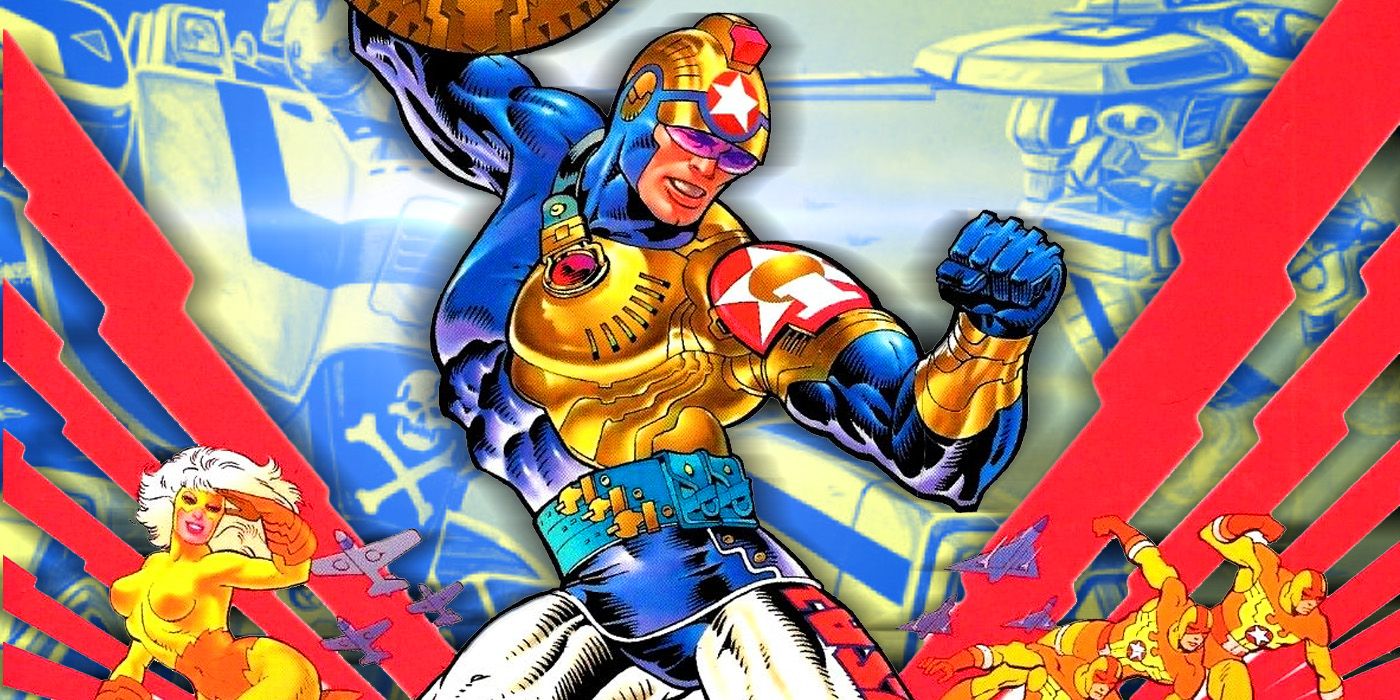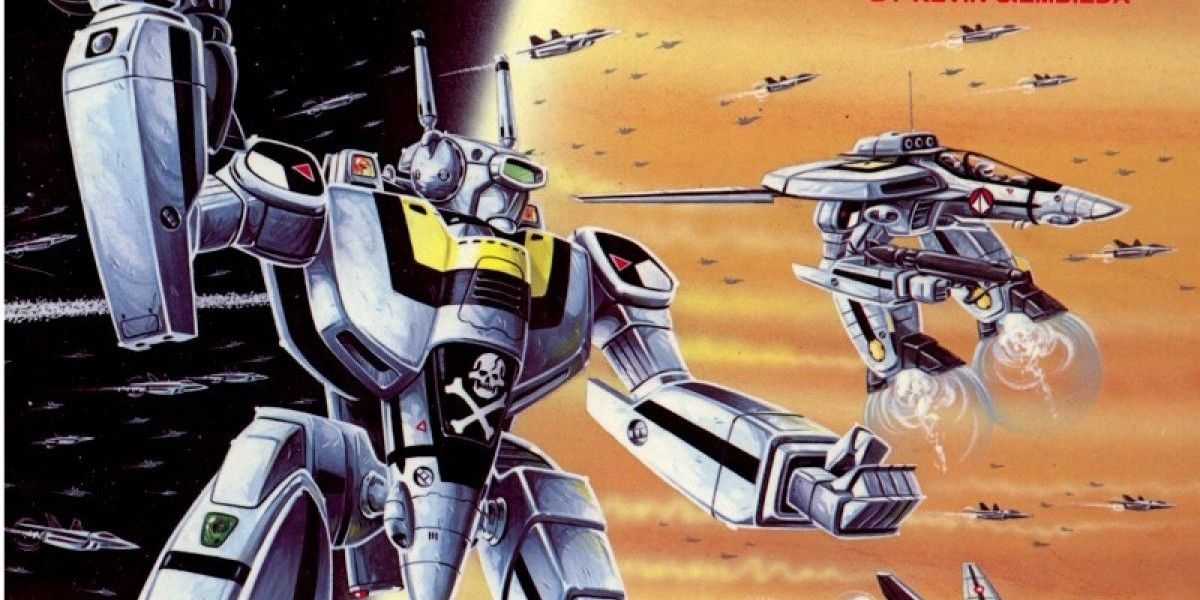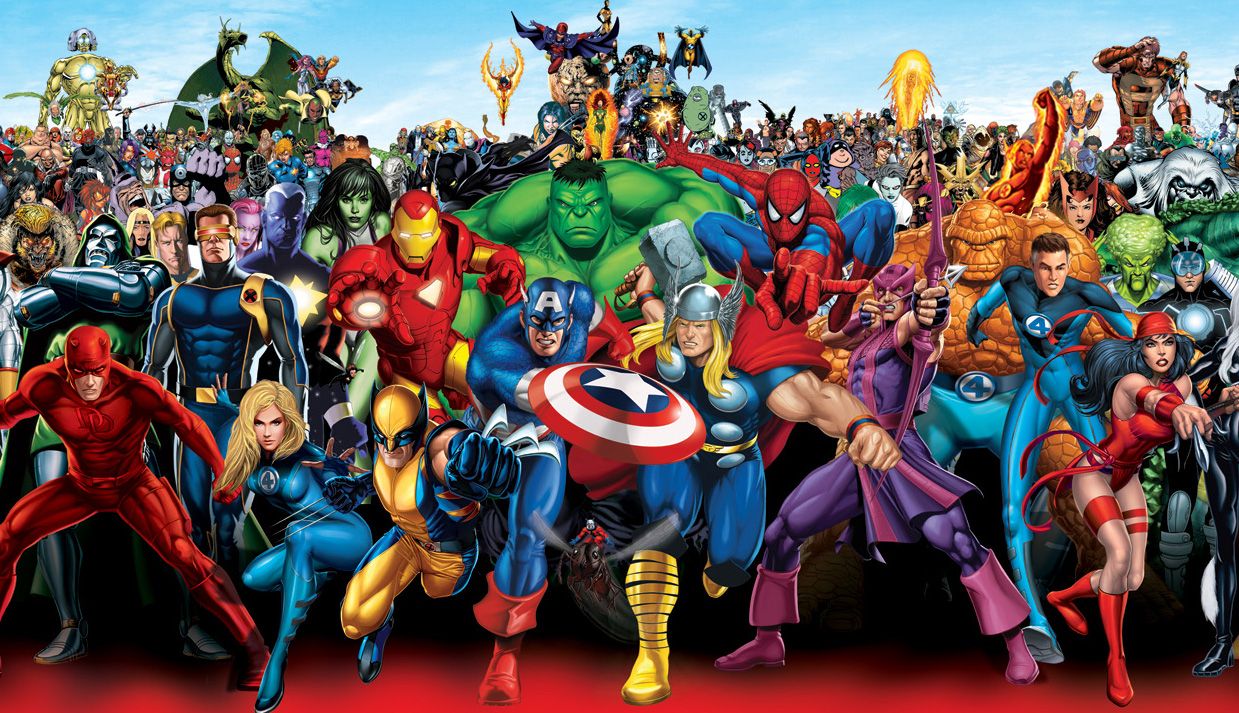Comic book readers from the 1990s will undoubtedly remember the advertisements for the role-playing game Heroes Unlimited. An advertising staple from that era, the game was supplemented and revised all the way through 2011, and the sourcebooks are still sold today. Despite its availability and advertising campaigns, Heroes Unlimited has remained less popular than other RPGs like Dungeons & Dragons or Pathfinder for a number of reasons.
Heroes Unlimited is a RPG where players take on the role of superheroes. The game is designed to allow for a wide array of characters and interpretations of what makes a "superhero." Like the makeup of current popular hero franchises, Heroes Unlimited includes rules for robots, magicians, aliens, inventors, weapon masters and more. This intensely customizable character design process is one of the draws of the Heroes Unlimited system.
In addition to the number of character possibilities, Heroes Unlimited also introduces some truly inspiring random roll tables. Players can roll on the "Stunts" table for their air vehicle to determine if their engine chokes or to know whether they have torn an arm muscle or developed a fever from taking substantial damage. The sourcebooks also codify some truly ghastly weapons, including Napalm and nuclear multi-warheads. Players have found these tables to be some of the most compelling and reusable parts of the game.
Heroes Unlimited was originally published in 1984 by Palladium Books, the same company that brought gamers the Rifts universe and lucrative Robotech franchise. While Palladium is still active, and those product lines have their own bands of devotees, the company was met with a slew of bad press after not fulfilling Kickstarter rewards and eventually losing the license to Robotech.
Palladium has come under scrutiny not only for its business practices but also (and perhaps more damning in the RPG communities) for game design. Heroes Unlimited tried to create rules for everything, codifying simple and small things like the price of a fake ID badge for a disguise or different mechanics for palming, lock-picking and pick-pocketing. The intense rule system can make gameplay clunky, a downside that is most apparent in combat.
Codifying mental illness into its character design as potential superpowers is also problematic. Heroes Unlimited includes methods for Game Masters to give player characters "insanities" in order to establish them with "quirks." While the core rulebook establishes how these mental illnesses should be the result of past trauma, they are mostly presented without care and display a gross misunderstanding about how many of these controversial diagnoses work. Heroes Unlimited also throws around ideas like "the Crazy Hero" with reckless abandon, suggesting that players use outdated diagnoses like Multiple Personality Disorder to fuel their hero's action.
Heroes Unlimited had some good moments of design -- the range of characters is a delight to players of more restricted games like Dungeons & Dragons. Players have also praised the game for how it handles the non-indestructible heroes, providing options for street-level fights where there are real stakes. Many players were drawn to Heroes Unlimited and Palladium games for their affordability, especially compared to other RPG systems at the time. If they got poorly edited and ill-formatted books filled with convoluted rules for that low price, it may still have been worth it. Palladium also had some good worldbuilding and big-name franchises, like Teenage Mutant Ninja Turtles, that helped bring players into their system.
Ultimately, however, the system is problematic in content and in gameplay, relying on outdated stereotypes to power its characters and a clunky, overwrought system to define its combat. Heroes Unlimited also never saw the extensive updates and redesigns that helped improve the functionality of other systems while making them approachable for new players. Perhaps this is why Heroes Unlimited remains on the outskirts of gaming communities today.



